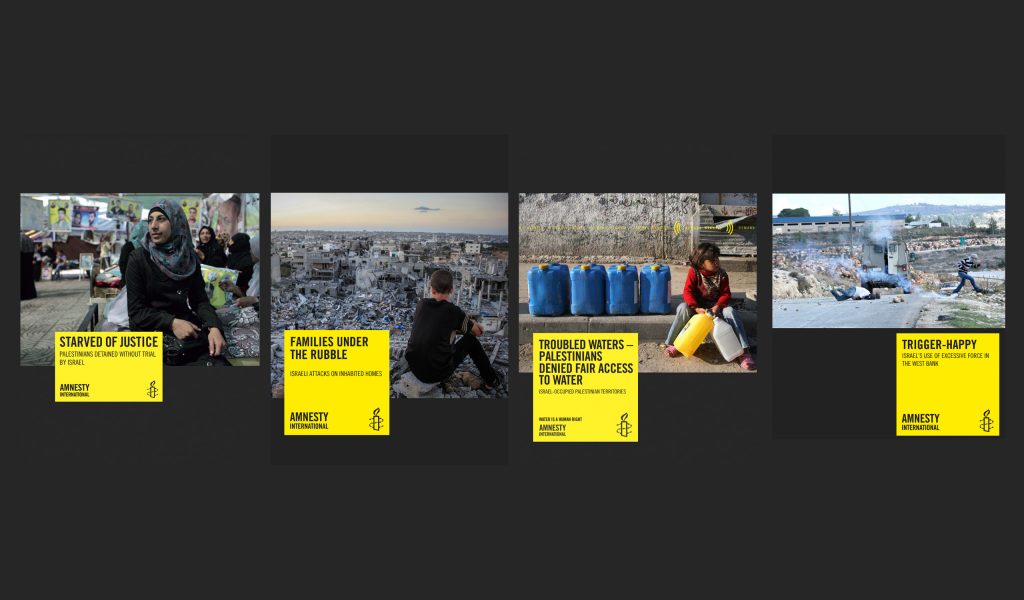IN THE MEDIA
‘Apartheid’ accusation against Israel puts NGOs on road to irrelevance
February 7, 2022 | Ahron Shapiro

A perverse symbiotic relationship exists between the latest fad by human rights organisations to accuse Israel of “apartheid” against both Palestinians and Arab citizens of Israel and the Boycott, Divestment and Sanctions movement against Israel, whose campaign to bully artists into withdrawing from the Sydney Festival was the focus of much media attention last month.
On Tuesday, Amnesty International became the third NGO to accuse Israel of “apartheid”, following Human Rights Watch and B’tselem last year. If history is any indication, the lock-step tendencies of NGO activity on the Israeli-Palestinian conflict would suggest that they won’t be the last.
Meanwhile, BDS – which was born out of the notoriously anti-Semitic UN Durban Conference in 2001 – has relied upon the use of extreme epithets like “apartheid” against Israel from its inception in order to justify itself and its aggressive methods.
The apartheid smear against Israel is absurd, but before explaining why, it’s important to recognise how beating the apartheid drum cynically serves the political ends of the NGOs and the boycotters, like two sides of the same coin.
To a great extent, core supporters for both groups share the same ahistorical worldview: Namely that Jews are not native to Israel, but Palestinians are, making Israel in their minds a settler-colonial project and every Palestinian allegation and grievance gospel that should never be questioned.
Further, these beliefs are today strongly linked to the fashionable idea of intersectionality and the far-fetched attempt by some to apply critical race theory to the Israeli-Palestinian conflict. This has seen groups like Black Lives Matter join in the apartheid canard despite the fact that over half the Jews in Israel are people of colour and the story of European Jewry is one of relentless exclusion and persecution.
The fact is, we have seen extreme criticism of Israel become the primary litmus test for acceptance into progressive circles and the non-government organisations they support.
While this has been true to some extent for decades, the cost of admission has risen like inflation.
Once, it was enough to criticise Israel for the sins of the occupation of the West Bank and Gaza since 1967 and settlements. Never mind that the capture of the territories was the outcome of a defensive war, and that Israel immediately offered to return land for peace and was rejected.
Never mind that under the 1993 Oslo Accords, well over 90% of Palestinians live in self-rule areas governed by the Palestinian Authority (today in Gaza, by the terror group Hamas).
Never mind that Israel offered the Palestinians statehood opportunities on the equivalent of virtually 100% of the territory after land swaps, plus the removal of isolated settlements, on at least three occasions since 2000 and has been knocked back each time by Palestinian leaders without so much as a counter-offer.
But mere criticism of Israel is passé. Today, that same “woke” groupthink demands Israel is branded with the crime of apartheid. Not just apartheid, but like an arrow with a bullseye painted around it after it lands, a unique apartheid definition has been invented by NGOs like Amnesty to conform with their distorted perception of Israeli transgressions.
Yet whatever problems Israel has – and levelling the playing field for minorities is a challenge all countries face – none of them resemble apartheid.
Israeli Arabs or Israeli Palestinians (every individual can choose for themselves how they wish to be identified), some 20 percent of the population, are guaranteed equal rights under Israeli law from the country’s inception.
An Arab Islamist party forms the lynchpin of Israel’s current unity government and Arabs and Druze serve as current government ministers and heads of influential Knesset committees.
Arabs serve on Israel’s Supreme Court, in government across multiple parties – including Zionist ones – and play leadership roles in science, medicine, sports, entertainment and practically every sector of society imaginable. They can choose to serve in the Israel Defense Forces, and 2020 saw a doubling of Arab enlistment. You can look it up.
Israel’s Religious Affairs Ministry pays the salaries of over 300 imams and muezzins nationwide, and funds the purchase of Korans for use in prayer as well as Islamic schools and colleges. Such schools teach Islamic studies and Arabic, along with general studies. Is this apartheid?
What about the Palestinians of the West Bank? Yes, outside of their self-rule areas they are subject to military laws, while Israeli citizens are subject to Israeli laws. Yet far from an indictment of Israel, this is what international convention dictates – to do otherwise would mean annexation. And that’s something Palestinians emphatically don’t want.
But, remarkably, what these Palestinians have said they do want is a state like Israel. A poll in 2016 found 68% of Palestinians found Israeli democracy to be “Good” or “Very Good”. The same poll saw only 32% say the same of their own Palestinian government.
All evidence points to Israel – with all its flaws – moving towards improving its policies towards its Arab citizens and Palestinians and not the opposite. And nothing supports the vile libel of apartheid.
NGOs and would-be boycotters would do well to reconsider the road they’ve taken – a path to extremism and irrelevance – and instead support those working for peace in the region, instead of those seeking to deepen division.
People like Israel’s Minister of Regional Cooperation Issawi Frej, an Arab from Kafr Qasim.
“Israel has many problems that must be solved, both within the Green Line and especially in the Occupied Territories,” Frej tweeted in response to the Amnesty report, “but Israel is not an apartheid state.”
Ahron Shapiro, Senior Policy Analyst, Australia Israel & Jewish Affairs Council
Tags: Israel, NGOs, Palestinians





